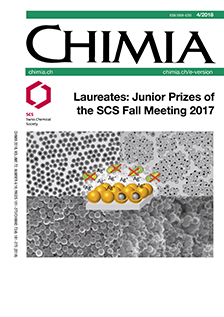Base-free Asymmetric Transfer Hydrogenation of 1,2-Di- and Monoketones Catalyzed by a Chiral Iron(II) Hydride
DOI:
https://doi.org/10.2533/chimia.2018.233Keywords:
Asymmetric transfer hydrogenation, Base-free, Benzoin, Hydride complexes, Iron catalysisAbstract
The chiral iron(II) hydride complex [FeH(CNCEt3)(1a)](BF4) (3, 1a is a chiral macrocycle with an (NH)2P2 donor set) catalyzes the base-free transfer hydrogenation (ATH) of prochiral ketones and the hemireduction of benzils to the corresponding benzoins using iPrOH as hydrogen donor. Ketones give the same excellent enantio-selectivity (up to 99% ee) as the parent catalyst [Fe(CNCEt3)2(1a)](BF4)2 (2), which is only active upon treatment with NaOtBu. Benzoins, whose labile stereocenter is known to undergo racemization under basic conditions, are formed in up to 83% isolated yield with enantioselectivity as high as 95%.Downloads
Published
2018-04-25
Issue
Section
Scientific Articles
License
Copyright (c) 2018 Swiss Chemical Society

This work is licensed under a Creative Commons Attribution-NonCommercial 4.0 International License.
How to Cite
[1]
Chimia 2018, 72, 233, DOI: 10.2533/chimia.2018.233.







